Description
Just released hardback biography, subtitled the cricketing life of MJK ‘Mike’ Smith
288 page hardback with dustjacket. Foreword by Jim Stewart
Additional information
| Year Of Publication |
|---|
1 review for Thompson, Mike – The Last Corinthian, MJK Smith
Add a review Cancel reply
You must be logged in to post a review.
Related products
-
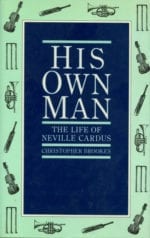
Brookes, Christopher – His Own Man, the life of Neville Cardus
Rated 0 out of 5$11.00 Add to cart -
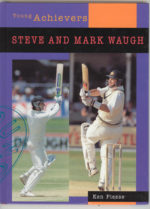
Piesse, Ken – Steve and Mark Waugh (Young Achievers)
Rated 0 out of 5$44.00 Add to cart -
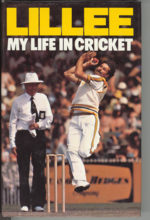
Lillee, Dennis – My Life in Cricket, signed and inscribed
Rated 0 out of 5$16.50 Add to cart -
Sale!
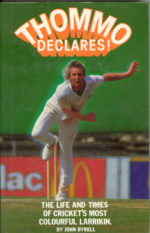
Byrell, John – Thommo Declares! Cricket’s most colourful larrikin
Rated 0 out of 5$22.00$5.50 Add to cart

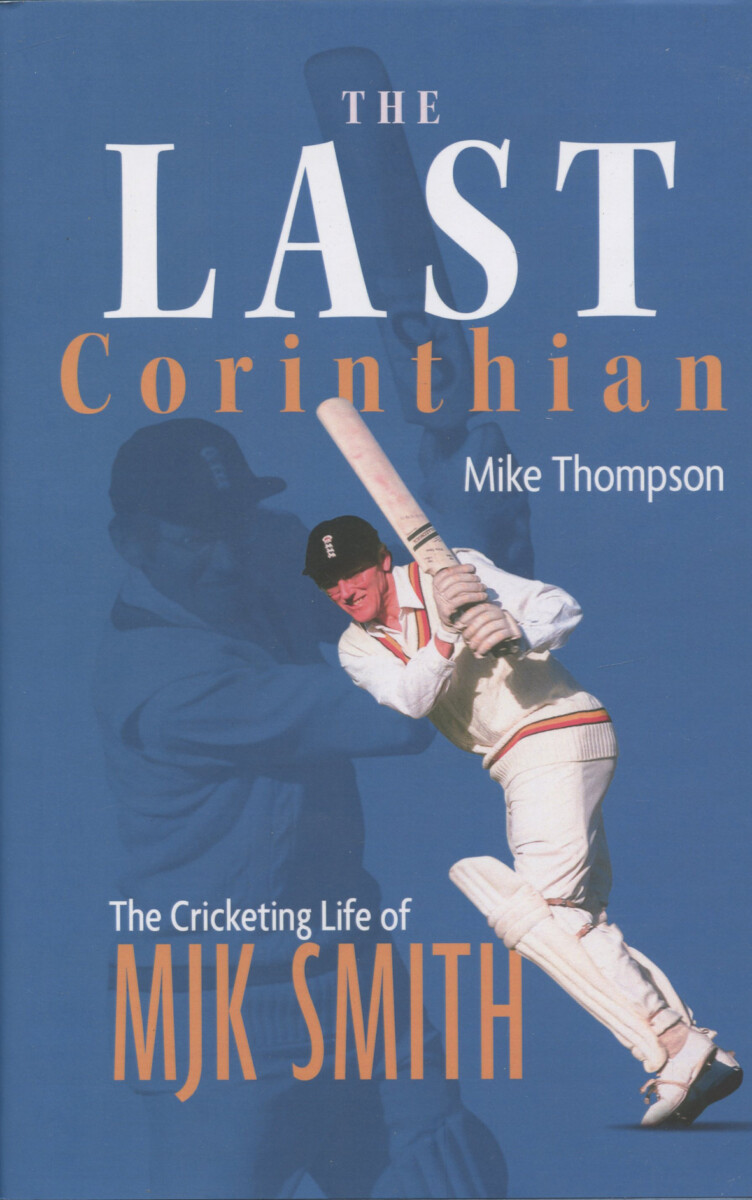

Ken –
Mike Smith averaged just 19 against Australia and won only five of his 25 Tests as captain yet remains a revered English cricketing royal.
A natural, inspired leader, Smith built a rare unity and team spirit, especially on tour. Any resentment at team selections would soon evaporate; so loved and admired was ‘MJK’.
The esteemed English amateur treated everyone as equals and didn’t have an enemy in the world.
Calm, tactful and dignified, if he missed out with the bat, he’d sit back down, unbuckle his pads and say, ‘That wasn’t very good… was it,’ and keep smiling.
A powerhouse at Edgbaston – he first captained Warwickshire at 22 – his stellar year, 1959, saw him amass 3245 first-class runs at an average of almost 60, triggering his re-selections for England and a brace of 1960s overseas tours.
When other more distinguished players like Ted Dexter and Colin Cowdrey were unavailable or unwilling to captain away from home, Smith would always step up.
Few were as team orientated. As touring captain he’d act as 12th man to give a teammate an extra game off. At Port of Spain, on the verge of his second Test century, he ignored easy singles to shield tailender David Allen from the strike.
At his most enterprising as Warwickshire’s long-time leader, he also had occasional moments of inspiration with England. Late one evening at Christchurch, he even bowled wicketkeeper Jim Parks as England all but secured an extraordinary victory.
Had the emerging John Snow, then 24, been included in that 1965-66 tour of Australasia – sharing the fast bowling duties with David Brown and Jeff Jones – Smith has no doubts England would have wrested the Ashes, adding even more lustre to his intriguing, roller-coasting journey.
The English outplayed Australia early, only a fumbled stumping by Parks robbing them of victory in Melbourne before they won easily in Sydney – the celebrated New Year Test in which his matchwinners Bob Barber and Geoff Boycott opened with 234 at a run-a-minute.
The Last Corinthian lifts a gear when the recollections of both men – and others – enliven the narrative. Barber insisted on having half the strike and would refuse Boycott’s entreaties for a single from the last ball of an over.
One Sunday during the 1964-65 tour, armed with expensive cameras, they went to a game reserve outside Durban and were all but mown down by a stampeding black rhinoceros. Author Mike Thompson said Smith almost lost his two openers that morning. At interview, both men insisted the other was first to retreat up a tree.
When Eddie Barlow refused to walk at Newlands – DRS was still light years away – the bowler, Freddie Titmus, called him a cheating bastard. Barlow stormed down the pitch brandishing his bat before Barber re-established calm, saying: ‘Eddie, you’re not big enough to start hitting anybody.’
Thompson’s chapter on the tour is full of pep and spice and includes the time in a bar at match-end at Port Elizabeth when an angry Barber threatened to flatten Peter Pollock with his bat should the aggressive paceman dare to bowl another deliberate beamer at any of the English.
However, there is more unnecessary match description, even of games in which Smith did not contest.
On agreeing to lead England’s wintertime tour of Apartheid-entangled South Africa, Smith said his priority was to win the Test series, which he did. ‘The political shit hadn’t quite hit the fan then,’ he said.
The chapter on the following season’s Australian tour is banal, despite many highlights and Australia’s come-from-behind efforts to retain the Ashes. Surely more could have been made of 19-year-old Doug Walters entering Test cricket with two majestic centuries in a row.
Smith had a poor time with the bat, but his leadership was impeccable, as was his close catching at short leg; always a strength.
When sacked as England’s captain after the opening Test of the 1966 home season, Richie Benaud termed it the ‘most dramatic chop in post-war cricket.’
Smith had never commanded a permanent place in England’s best XI, being dropped CHDECK times over a 17-year period. When recalled, aged 38, to England’s top-order after a six-year absence against Ian Chappell’s 1972 Australians, he was one of the most successful in combatting the late each-way swing of a debuting Bob Massie.
A noted legside player, at his best against finger spin, Smith amassed almost 40,000 first-class runs across 25 seasons, scoring 69 hundreds, all while wearing thick, shatter-proof spectacles.
His auspicious rugby achievements, which included a Test at Twickenham, is summarised in only a few pages. Equally curiously, his career in stats inexplicably rates just half a dozen lines, maybe out of respect to a previous MJK biography – now well out of print and released a decade ago in only very limited numbers.
It is refreshing to be reminded of the virtues of a very fine cricketing journeyman, now 90 not out. But this trip down Memory Lane lacks life and vibrancy. Some team photographs are fully captioned; others aren’t. Some have Christian names; others have initials. All are produced on cheap stock – the same as the manuscript. Publishers need to remember that most of us who collect books like to be stimulated. We love the smell, the feel and experience of handling a quality, new book. We gravitate to the picture sections which we expect to be on glossy paper. We are discerning and have budgets. If such cheap and nasty cost-cutting continues, we will turn off, no matter the front cover appeal. – KP